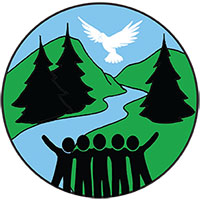MEMORIAL DAY IN THE TIME OF COVID BY William Larsen, Nevada City
Fifty one years ago I was in a Vietnam firefight where five of “our” guys were killed outright, and twenty seven wounded. “We” never knew how many ended up dying because “they” (our fearful leaders) never told “us”.
There was no way of knowing how many of “their” guys (the NVA) were killed or wounded. “WE” (“them” and “us”) never talked much.
The truth is, “we” never saw a soul in those fiery moments (only afterward when we found “their” dead and wounded). Just raging explosions blasting from the obscenely tangled jungle: AK-47 bursts, rocket propelled grenades, motor rounds followed by the thunderous explosions of “our” 155 millimeter artillery shells. Oh yeah, the “friendly fire”. Actually, not very friendly, and very, very indiscriminate, coming in so close because “we” were in direct combat with “them”, and then everybody got the shrapnel slicing through bodies, trees and limbs. In that moment “WE” were one.
As the company medic, I tended to the wounded NVA soldiers after ”OUR” bloody affairs. This was done on the ground, where we found “them”, in the vast jungle hundreds of miles from the nearest village. It was the most primitive triage setting imaginable. Young guys, some obviously in their teens––as were “our” guys whose average age was 19––ripped up like their bodies had been put through a meat grinder. And “they” had the same look on their face as did “our” guys when “they” were the ones getting torn up. The same face, an old comrade told me a few years ago, that I had on mine when I got hit by three AK-47 rounds a few weeks later (no, I can’t find words to describe that look).
But it was that look, on many faces, which first made me realize WE are one. And it was the loss of many friends––and “enemies––that made me understand how impossible it is to truly grieve for one without grieving for all. The heart, after all, is a vessel, and when the container is ruptured, the illusion that we control its content is shattered.
I grieve these losses in a way that is no longer voluntary, for their absence lives within me in a way it is not possible to deny. I grieve those on all sides who became trapped in the raging hell of all wars: dead soldiers, survivors and civilians; the wounded; those bereaved and those embittered. I grieve for those tortured in atrocities, and for those so damaged in their hearts they unleashed their agony upon others.
And now the entire environment is mounting an attack against US––a counter attack actually, against the war of relentless, human consumption against OUR world––and “we” continue to be in opposition to “them” in devising a unified response to OUR global pandemic. To so many, it would seem, the war waged between ourselves is more important than survival itself, and that “our” welfare can somehow be enhanced by inflicting suffering onto “others.” It is my fervent prayer that this premise is untrue
So I contemplate my losses this year with an especially heavy heart. I am not nearly wise enough to truly understand humanity’s addiction to war, but I do believe the very notion of warfare itself originates with the delusion that we are separate. That there truly are entities such as “them” and “us”. War has taken much from me, but much has also been given. I relish the core realization that came out of my war experience: the longer I live, the less able I am to discern one life as separate from all life. As we go forward in this mad, loving doomed dance that is both our plight and our salvation, I grieve for us all.

